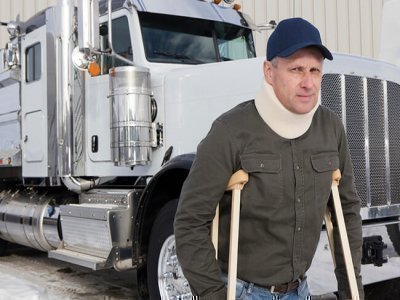Are You Ready For This New Law?
On 1 October 2018, significant changes were made to the Chain of Responsibility (CoR) laws. They will have an impact on many industries and on many businesses. If you’re in the heavy vehicle transport ‘supply chain’ you will have a duty of care to proactively identify hazards and work to remove or minimise risks. Whether you’re involved in maintenance, construction, transportation or management you will be affected.
We’re talking about Heavy Vehicles so it’s important to clarify what this refers to. A heavy vehicle is a vehicle or combination with a gross vehicle mass of 4.5 tonnes or more. The gross vehicle mass (GVM) is the maximum the vehicle can weigh when fully loaded. This encompasses trucks, trailers, buses, tractors, cranes, construction vehicles and even heavy forklifts.
These reforms are a significant step forward in recognising that everyone in the supply chain has a role to play in ensuring heavy vehicle safety. The reforms aim to complement heavy vehicle and national workplace safety laws, and place a positive duty of care on all heavy vehicle supply chain parties. The new laws make it clear the responsibility of duty holders to understand and assess their risks, and ensure they are complying with the law. Sal Petroccitto CEO, NHVR
What Is Chain of Responsibility (CoR)?
COR is similar to the legal concept of 'duty of care' that underpins Health & Safety law. It’s designed to ensure that all parties involved in the supply chain are committed to, and responsible for, the safety of the people driving the vehicles. Any party in the chain who exercises influence over the transport activities is responsible for road safety.
To put this into simple language here is an example of what we mean. If a driver is found to have broken the speed limit, or driven while fatigued, everyone who was responsible for requiring that driver to undertake a long journey in an unsafe manner could be prosecuted under the national law
CoR laws form part of the Heavy Vehicle National Law (HVNL) and are regulated by the National Heavy Vehicle Regulator (NHVR). Note: Although equivalent legislation exists in the respective states, the Northern Territory and Western Australia do not operate under the HVNL.
The key areas targeted by COR are:
- Speeding
- Fatigue Management
- Mass Dimension
- Load Restraint
Who Is Impacted By CoR
All parties in the supply chain – consignor/dispatcher, packer, loader, scheduler, consignee/receiver, manager, as well as the driver and operator – must take all reasonable steps to prevent breaches of the road transport mass, dimension, loading, speed compliance and work hours laws.
If your business has any connection with a heavy vehicle that moves freight from point A to point B – whether you own the transport company, are a contract driver, or you arrange to deliver or receive the freight – CoR laws apply to you.
The law recognises that multiple parties may be responsible for offences committed by the drivers and operators of heavy vehicles and legal liability applies to all parties for their actions or inactions.
Those in the Chain of Responsibility include:
- Loading manager
- Consignee
- Operator
- Consignor
- Scheduler
- Packer
- Loader and unloader
- Employer
- Executive officer
- Prime contractor
What Are The Changes To CoR?
In the past, CoR laws required all parties to take reasonable steps to prevent breaches of mass, dimension, loading, speed and fatigue laws. In October, this will expand to include vehicle standards and maintenance.
This new primary duty represents a legal obligation to eliminate or minimise potential harm and risk by doing all that is reasonably practical to ensure safety.
Major amendments to the law are as follows:
- A New Primary Duty
You will be required to take all reasonably practicable steps to ensure the safety of your transport activities. This puts increased focus on a CoR management system framework that must be put in place in order for a business to be said to be taking all reasonably practicable steps. CoR laws place specific duties on those in the CoR beyond the general duties owed to others by organisations under Health and Safety Legislation. - Executive Officer Liability
As a company executive you must make sure that all your company complies with its duties under the new law. You have to proactively ensure compliance, even if an offence has not been committed. Bottom line, if the company is found liable, you can be held personally liable. - Penalties
New penalties are being introduced alongside the “so far as is reasonably practicable” defence:
Maximum five years imprisonment
$300,000 fine for individuals
$3 million fine for companies - Vehicle standards (maintenance) is being added
Vehicle standards is being added as a new CoR compliance component. This relates to design, construction and roadworthiness standards. - CoR management system aligned with HS management system
Its likely that the most effective means to manage your organisations CoR responsibilities is to integrate CoR management into your existing management systems. This includes recording the legislation in your compliance register, assessing CoR hazards and controls and integrating the systems to meet the legislative compliance and manage risk into your existing systems .
What You Need To Do
Being proactive with a focus on prevention is the key to compliance. According to the National Heavy Vehicle Regulator (NHVR), the best way to ensure CoR compliance is to have safety management systems and controls in place, such as business practices, training, procedures and review processes that:
- Identify, assess, evaluate, and control risk
- Manage compliance with speed, fatigue, mass, dimension, loading and vehicle standards requirements through identified best practice
- Involve regular reporting, including to executive officers
- Document or record actions taken to manage safety
The new CoR laws will affect the operations of up to 165,000 Australian businesses that make up the heavy vehicle supply chain. If they apply to you, if you haven’t already done so, now is the time to start developing and implementing a comprehensive CoR Management System. According to the CEO of the NHVR, the new laws make it clear that the responsibility of duty holders is to understand and assess their risks, and ensure they are complying with the law.
Suggested References From The NHVR
- CoR checklist - Use this checklist for the tasks you undertake in your role to see if you are a party in the transport supply chain under the HVNL.
- Know your role - New CoR laws are a significant step forward in recognising that everyone in the supply chain has a role to play in ensuring heavy vehicle safety.
- CoR presentation - Changes to Change of Responsibility









